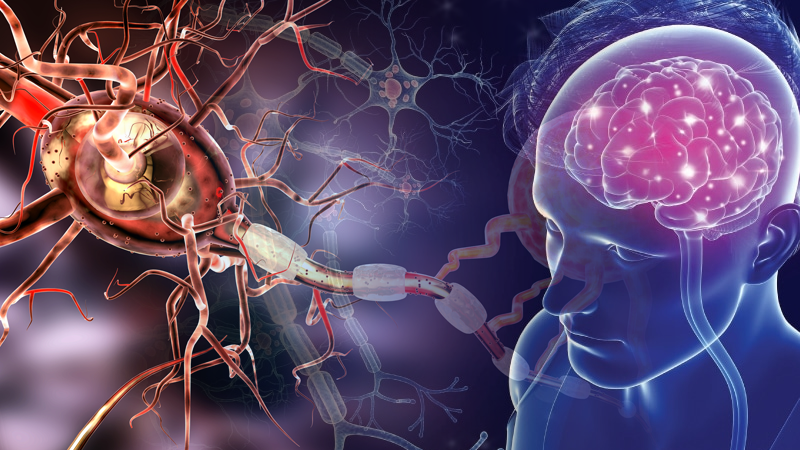Multiple sclerosis (MS) is a chronic disease that affects the central nervous system (CNS). The CNS is made up of the brain, spinal cord, and optic nerves.

Multiple sclerosis (MS) is a chronic disease that affects the central nervous system (CNS). The CNS is made up of the brain, spinal cord, and optic nerves. Multiple sclerosis is an autoimmune disease, which means that the body’s immune system attacks healthy tissue.
In the case of MS, the immune system attacks the myelin sheath, which is a protective layer that surrounds nerve fibers.
When the myelin sheath is damaged, it can slow down or block nerve signals. This can lead to a variety of symptoms, including fatigue, weakness, numbness, tingling, vision problems, and difficulty with balance and coordination.
While Multiple sclerosis disease is most commonly associated with these more well-known symptoms, there are a number of other surprising symptoms that can also occur. Some of these surprising symptoms include:
Symptoms of Multiple Sclerosis
Cognitive problems
MS can sometimes cause cognitive problems, such as difficulty with memory, concentration, and decision-making. These problems can be mild or severe, and they can make it difficult to work, go to school, or take care of everyday tasks.
Pain
Pain is a common symptom of MS, and it can occur in a variety of different areas of the body. Some people with MS experience chronic pain, while others experience pain that comes and goes. Pain can be caused by inflammation, nerve damage, or muscle spasms.
Fatigue
Fatigue is one of the most common symptoms of MS, and it can be very debilitating. People with MS often feel tired all the time, even after getting a good night’s sleep. Fatigue can make it difficult to work, go to school, or participate in activities that they enjoy.
Bladder problems
MS can sometimes cause bladder problems, such as urinary urgency, frequency, and incontinence. These problems can be embarrassing and inconvenient, and they can also lead to infections.
Sexual problems
MS can sometimes cause sexual problems, such as difficulty with arousal, orgasm, or lubrication. These problems can be caused by a variety of factors, including fatigue, pain, and medication side effects.
Depression
MS can sometimes cause depression. Depression is a common mental health condition that can cause feelings of sadness, hopelessness, and worthlessness. Depression can make it difficult to cope with the challenges of MS, and it can also make the symptoms of MS worse.
Anxiety
MS can sometimes cause anxiety. Anxiety is a common mental health condition that can cause feelings of worry, nervousness, and fear. Anxiety can make it difficult to cope with the challenges of MS, and it can also make the symptoms of MS worse.
Mood swings
MS can sometimes cause mood swings. Mood swings can be caused by a variety of factors, including fatigue, pain, and medication side effects. Mood swings can make it difficult to maintain relationships and cope with the challenges of MS.
If you are experiencing any of these surprising symptoms, it is important to see a doctor to get a diagnosis. MS is a complex disease, and there is no one-size-fits-all treatment. However, there are a number of treatments that can help to manage the symptoms of MS and improve quality of life.
Managing the symptoms of Multiple Sclerosis
Here are some tips for managing the symptoms of Multiple Sclerosis:
Get regular exercise
Exercise can help to improve fatigue, balance, and coordination. It can also help to reduce stress and improve mood.
Get enough sleep
Sleep is essential for healing and repair. Most people with Multiple Sclerosis need 7-8 hours of sleep per night.
Eat a healthy diet
A healthy diet can help to reduce inflammation and improve overall health.
Manage stress
Stress can worsen Multiple Sclerosis symptoms. Find healthy ways to manage stress, such as exercise, yoga, or meditation.
Take your medication as prescribed
Medication can help to manage the symptoms of Multiple Sclerosis. It is important to take your medication as prescribed by your doctor.
See your doctor regularly
It is important to see your doctor regularly to monitor your Multiple Sclerosis and make sure that your treatment plan is working.
If you have been diagnosed with Multiple Sclerosis, it is important to remember that you are not alone. There are many people who are living with MS and managing their symptoms successfully. There are also many resources available to help you cope with the challenges of MS.
